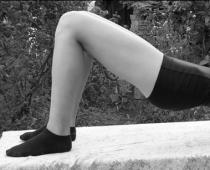Articles on current topics in ophthalmology and advanced medicine. Interviews with leading experts of the Center.
Cataract treatment. Kochmala Oleg Borisovich on the air Don24
Ether 28.08.2017.
Renowned ophthalmologist from Rostov conducted a complex operation live
The head of the Rostov Eye Microsurgery Center, Oleg Kochmala, along with the best ophthalmic surgeons of Russia and the world, took part in the Live Surgery project and conducted a complex operation live — microinvasive vitrectomy for macular fibrosis.
New methods of plastic ophthalmosurgery
Introduction of new methods of plastic ophthalmosurgery into the medical practice of the Eye Microsurgery Center.
Scientific-practical conference with international participation in Moscow
October 26-29, 2016, in the IRTC "Eye Microsurgery" named after academician S.N. Fedorov in Moscow, the traditional annual scientific-practical conference with international participation was held.
Cataract: causes, symptoms and diagnosis
Cataract - clouding of the lens of the eye - occurs in almost half of the inhabitants of the earth over the age of 40 years. According to medical statistics, it is she who is the main cause of blindness on a global scale.
Choosing the right lens: which lens to choose?
All cataract operations, regardless of the method used to perform them, are associated with the implantation of an IOL - an intraocular lens, in other words, an artificial lens.
Laser vision correction - when and to whom?
Laser correction is a highly effective modern method of improving vision. The laser beam is directed to the cornea of the eye, which under its influence changes its shape. At the same time, the retina acquires its ability to focus the image normally, which significantly improves vision.
Laser vision correction during pregnancy: can it be done?
Laser correction is a modern method of vision restoration, in which the laser beam affects the cornea of the eye, changing its shape. Thanks to this unique procedure, vision is greatly improved - people get rid of glasses and remove contact lenses.
Cataract: diagnosis, treatment, surgery and preparation for it
Cataract is an ophthalmologic disease caused by clouding of the lens. If time does not take action, the disease progresses and threatens blindness. That is why it is so important to diagnose the disease as soon as possible and begin treatment.
Who should not do laser vision correction? Contraindications to surgery
Laser correction is the most modern method of restoring vision, but it has a number of contraindications. Restrictions for this operation are divided into two main groups. They are absolute and relative. The former prohibit the procedure, and the latter are a temporary obstacle to it.
Preparation for laser vision correction: everything you need to know about clinics, doctors and types of surgery
Today, the method of laser vision recovery is widespread.
And this means that a lot of medical institutions have appeared, which promise their potential clients to quickly get rid of glasses and contact lenses.
All-Russian Conference of Ophthalmologists was held in Rostov
The All-Russian Conference of Ophthalmologists was held in Rostov. The best doctors performed eight complex online operations. The work of specialists was observed at once in several large medical centers in the country.
In the Road Clinical Hospital in Rostov, vision can now be treated in 10 seconds
10 seconds per operation. In the Rostov Road Clinical Hospital, vision is now being treated at a new level. The most recent acquisition of the clinic is a state-of-the-art laser machine. It almost completely eliminates the medical error, significantly reduces the duration of the operation, and, as doctors themselves admit, quite recently this technology was simply fiction.
Questions about the newest method of vision correction. Excimer laser correction
Answers questions
candidate of Medical Sciences Chernetsky Yevgeny Oskarovich, leading specialist of the Eye Microsurgery Center.
The greatest number of questions were asked about the method of laser vision correction (LKZ) - a new and truly miraculous method. Therefore, many ask for clarification: what is a myth, and what is the reality about laser vision correction. And answer the important question about laser vision correction -
Lasik
Lasik (read "Lysik") - this is the most frequently performed operation for the correction of vision. Most often, this operation is performed to correct myopia, but it helps with astigmatism, as well as with hyperopia. The name of the operation is an abbreviation of its full name in English - Laser-Assisted in SItu Keratomileusis (laser keratomileusis).
Retina - treatment
Retina. What is it about? Its function in the visual process
The retina is a thin inner eye sheath. It is a department for the primary processing of images perceived by the eye. In it, there is a process of further transmission of the received nerve impulses. From the retina, they enter the corresponding parts of the brain, where they are formed into a complete visual image.
See and win!
Came, saw, won!
Of course, unlike the great Homer, who was not prevented by blindness to become famous for centuries, a business man must be able to see - both literally and figuratively .... In the Department of Eye Microsurgery of the Road Clinical Hospital, the North-Caucasian Railways has every opportunity to help those who have problems with their eyesight, and at the same time not to deprive them of the most precious - time! Myopia, cataracts, "age" vision will disappear without a trace and as soon as possible, because the professional level here is as high as the equipment class.
Glaucoma - Symptoms, diagnosis and treatment
In modern medical terminology, glaucoma is an extensive group of diseases of the organs of vision, characterized by increased intraocular pressure, damage and further atrophy of the optic nerve, as well as a significant reduction or even loss of vision
World of your eyes
To see and distinguish the shades of the world around us is one of the most amazing abilities given to you by nature. However, we really begin to appreciate it, facing serious problems of deteriorating vision.
Today, Bomond offers you to think about this issue together with Oleg Borisovich Kochmala, an ophthalmologist and head of eye microsurgery department at the Road Clinical Hospital at st. Rostov-Main Railways.
In his office, among a huge number of foreign diplomas, certificates and scientific periodicals, we tried to find out what is inside the inner world of your eyes.
Good vision - good people.
This year Road clinical Hospital NCSD celebrates its 100th anniversary.
Over the past decade, the hospital has carried out a large-scale reorganization of all existing areas.
May I present an alternative point of view in this discussion?
The trick here is that the eye is an organ, the change in vision is a temporary deviation. Here you have a ligament injury - then you bandage the bandage, let's take a leg injury - you take a crutch, walk with it for a month, then, though hard, you remove the crutch and work it out, work it out. Glasses are a crutch for the eyes, why when the reason goes people never take off this crutch? Read and think to yourself:
Myopia appears in people who fear the future. To understand the cause of myopia, you need to remember what was associated with fear, when this disease was just beginning to develop. Very often this disease occurs during adolescence in adolescence. They are afraid of becoming adults, because The world of adults is incomprehensible to them and this scares them. Another reason for myopia is too much concentration on oneself and unwillingness to accept other people's ideas. Such people have a limited outlook.
Let's take a closer look at what causes myopia.
First, it is of course unwillingness to see something. Like most diseases, this can be traced back to the frequent use of such phrases in speech as “I don’t want to see you,” “my eyes wouldn’t see you,” “I’m going to put on eyes,” “I can't look at it,” etc. . Therefore, you need to get rid of such solutions to problems in communicating with people. Learn to take people differently and calmly respond even to some of their actions, which you do not approve. Trying every time to turn away from a person or a situation, you thereby make an order to your subconscious that you do not want to see it. Here is your body and reduces your eyesight - now you don’t even have to turn away, you don’t see so many things without glasses.
What are the underlying causes of this disease:
1. Uncertainty about the future, in yourself.
2. All kinds of fears, the mental representation of some negative situations in the future. Very often, as soon as we have a desire to do something new - move to a new city, find a new job, organize our business, etc., we immediately begin to draw horrible pictures of what losses and troubles this may lead to. For some reason, some people tend to lose in their head is not a positive scenario, but a negative one. And there is a terrible fear in general of the future - because there can happen a lot of trouble, disappointment, loss. Ie it is perceived by the body as your order for not wanting to look into the distance of life, to look into the future - this is scary for you. And the body obediently fulfills your order.
3. Fear of seeing disapproval of their actions in the eyes of other people.
4. Often, vision falls in those people who are used to painting their future to the smallest detail, who have everything thought out in advance for the rest of their lives. But those who live today, often have excellent vision.
5. During adolescence, a teenager will have a great deal of uncertainty and fear that everything will go wrong for others; that he is not as attractive as his friends, that girls (boys) will look at him with mockery. Also, strong stresses occur in children during the transition to a new school - where they immediately need to gain the trust of new classmates, who are often not very welcome to beginners.
To the above, you can also add the fact that if a person puts on glasses and seems to begin to see again at 100%, and the internal reluctance and fear to see it remains, then the vision continues to deteriorate every year.
It can be concluded that myopia appears from stress, it becomes stress itself (since the transition to the constant wearing of glasses and dependence on them is a big stress), and forms stress for the rest of your life — with the appearance of glasses, the lives of many people change. This causes shyness, and complexes, and stress, and a limitation in activity.
Six months ago, I decided and did laser correction view. I want to tell why it was done, what the alternatives were, and what is happening with my eyes now. Perhaps someone this experience may be useful.
For those who for some reason do not know.
Laser vision correction is a photochemical ablation of the cornea layers under the influence of an excimer laser beam, resulting in a change in the curvature of the outer surface of the cornea and, as a result, in its refraction, which leads to the focusing of light rays on the retina, that is, the return of good vision.
Wikipedia
In simple words: you, with the help of a laser, will change the curvature of the cornea and, due to this, the vision will be good. I have experienced laser keratomile sores (LASIK) - a modern high-tech method of laser vision correction, which is considered to be the most safe and accurate.
Many people with poor eyesight think about laser correction. But not everyone does. For some, there is an insurmountable obstacle - medical contraindications. Others are simply afraid. Someone easier to go with lenses and glasses. There is a unique category of people to whom a separate bow is, those who correct their vision with the help of special exercises (if you are in this category and have made some progress, be sure to get in touch through comments, your experience is interesting).
I was scared too, but from the most good lenses my eyes hurt, I wore them only for some significant events, and it was a one-time decision. Glasses are pretty much fed up since childhood + in winter, they are completely uncomfortable. Someone will add to this that a one-time fee for correction (I got about 30,000 for both eyes) is more economical than regular buying lenses or buying glasses (less often than lenses, of course, but expensive), especially if you since childhood.
Vision at the time of the operation: -3, -3.5 (for understanding, this is not very bad vision, but the numbers of minibuses are badly seen, so that you do not have time to give up). However, I was not particularly compared with anything. This later I learned how the world looks in detail.
While I wore glasses only situationally, my vision practically did not fall. After the glasses finally settled on my nose, my vision began to deteriorate, and with glasses it became visible just as before it was without them. Ophthalmologists, to whom I turned, called for just a constant vision correction. I didn’t like the prospect of changing glasses every six months or a year, gradually increasing the strength of the lenses and seeing how my eyesight gradually deteriorated. And I finally confirmed the desire to have an operation.
A huge plus, in favor of the choice of laser vision correction, was the lack of hospitalization and the ability to quickly return to work.
Of course, there were fears.
Fears and questions:
- Will my vision fall soon after surgery?
- Were there any unsuccessful cases that led to blindness or serious damage to the eye and am I among those unfortunates?
- What if I have low healing and will have defects on my eye or will an infection get there?
- How not to miss with the choice of the clinic?
Answers that I received:
If you work a lot or just sit at a computer for a long time, then you are at risk.
While maintaining a passive-sedentary lifestyle, vision will slowly begin to fall. The fact is that if you constantly sit at the monitor, then your eyes are overstrained. At some point, this overstressing can be removed by eye drops. But if you leave everything as it is, then at a certain point you cannot get enough of drops, myopia will begin to develop again.
From the very beginning, the doctor warned me about the need to perform elementary exercises for vision. In this case, it was necessary to focus on the exercise with the transfer of focus from the tip of the nose to a distant object and back. This exercise allows you to keep your eyes in good shape and avoid the destructive overvoltage that occurs during prolonged continuous focusing on a close object (for example, on a laptop that stands before you).
On issues 2 and 3, I didn’t get anything terrible and in the end everything worked out. The bruises after the operation were, of course, but successfully healed, and now the eyes look normal.
The choice of the clinic took place solely on the basis of feedback from people whom I personally know and who have already done similar operations in our city.
How was the operation?
First, I underwent a medical examination in an eye clinic and the doctor told me about the operation, then I passed all the necessary tests. After that, I received confirmation that the operation can be done.
On the day of the operation, they gave me an anesthetic, anesthetic was dropped into my eyes, and after a small amount of time I was asked to lie down on the operating table. A speculum was inserted into the eye in order to eliminate spontaneous blinking (at this stage, the main thing is to relax and not resist, then it will not be painful). Then I was asked to look at the red and green lights of the installation. Then, by eye (alternately), a vacuum ring was lowered, which “pressed” until completely darkened, then a few seconds of unpleasant sensations, while the flap was cut and pushed back. This is the only place during the operation where the patient may experience discomfort within a few seconds or may not. Then there is a direct correction with a laser, after which the flap is returned into place and taken to the second eye. The whole operation takes no more than 10-15 minutes.
At the time of rehabilitation after surgery, they give official sick leave (although you can return to work on the 2nd day after surgery). It makes sense for the hospital to take those whose work is connected with a long stay in front of the monitor screen (in order to avoid eye strain) and those who cannot bury in the eyes 6 times a day while at work. Since my work is directly related to a long stay in front of the computer, I took advantage of the hospital.
After the operation, the doctor conducts regular eye examinations and monitors their condition.
Feelings after
After the operation, I experienced a slight sensation of euphoria and a desire to consider literally everything. The world has opened up to me in detail. In addition, living with 100% vision has made me much more comfortable and safer.
About half a year has passed since the operation. Vision does not fall. But what happened was what the doctor warned me about: at the first stage I didn’t do the exercises at all and sat more than 10 hours a day at the computer with minimal interruptions. As a result, the eyes spasmed and had a month to drop special drops. Now the situation has returned to normal, I try to do at least once a day exercises for the eyes and short breaks in work.
Dear readers, we are interested in your experience. Share in comments how laser vision correction changed your life, did you have 100% vision after it?
P.S .: You may find the information useful that laser vision correction refers to operations for which you can receive a tax deduction of 13% of the amount spent. Keep your checks!
Vision correction, you need to find out who needs it and why. Due to laser vision correction, a person is deprived of such health deficiencies as astigmatism, myopia or hyperopia. People who have only minor abnormalities in vision should not be operated on with vision, such trifles are not noticed. But if the level of vision is reduced extremely high or low, the operation is mostly recommended. Who needs laser vision correction:
1. People whose activity is associated with a quick response, poor eyesight prevents you from immediately understanding what is happening far from you or nearby,
2. Those whose work is connected with the aggressive environment around. The fact is that in such conditions it is impossible to wear not only glasses, but also contact lenses and a person loses working capacity (See also: How to prepare for laser vision correction.)
3. People with a high degree of visual impairment, when the vision does not allow to distinguish between people, their faces,
4. For individuals with different levels of vision in their eyes: if one eye has good eyesight, and the second one is bad, surgery is necessary,
5. To those whose poor eyesight causes severe discomfort or wearing glasses seems terrible, and using lenses is unhygienic and dangerous.
Of course, no one will force you to do laser vision correction, but an expert should recommend that you should perform an operation or not. (See also: How animals are vaccinated and why)
Should I do a laser vision correction.
Many, before learning how to do laser vision correction, begin to think: is it worth doing it? It is not right. What is needed to decide on a solution?
Find a list of clinics that do laser vision correction, decide on the choice of clinic,
Consult the selected clinic for advice, it is best to make an appointment with a specialist and for the diagnosis of vision,
Take an eye examination, talk to your doctor, ask him if you can agree to an operation with your eyesight,
Ponder whether you want to solve your vision problems yourself or they don’t worry you much,
Give the answer to the clinic: do you agree to the operation, and on what day or do not agree.
The article is the personal opinion of the author and is for informational purposes only. To solve your problem, consult a specialist.
The eyes are often called the mirror of the soul. But it so happens that this very mirror is hidden by glasses or contact lenses, and all attempts to return the precious sight are fruitless. In this case, laser correction can come to the rescue - the most effective, safe and reliable way to restore vision. recognized by the leading ophthalmologists of the world. And all the interesting things about vision can be read on the site: eyeshelp.ru. So is it worth it to do a laser vision correction - let's find out.
Laser correction of sight already "placed" the fifth ten. Worldwide, over the past 10 years alone, more than 5 million such operations have been carried out. The technology of the method has become so perfect that it allows people from 18 to 55 years old to return sight in a matter of minutes. One does not even have to ask the question: “What will happen to me if in the midst of the operation the eye blinks and the hand reaches out to straighten the hairstyle?” Is my face going to be with “laser marks” and the eye will not see anything else? ” Everything is simple - the latest generation of excimer lasers are so perfect that, with the slightest deviation, a special system stops the correction process, and the operation continues only after the eye position has been leveled.
The main advantages of the procedure are painlessness and the absence of hospitalization! Only a few days will be needed for that to go back to your favorite lifestyle! And no more eyeglasses points on the nose, no-ki lenses.
Excellent laser correction results depend on two parameters:
TRUTH AND Fiction
Dispel the myths about laser vision correction.
Making laser correction is painful and scary.
Here one cannot say “no” or “yes”, since the threshold of pain sensitivity is different for each person. Someone is hurt by one type of nurse with a syringe in her hand, someone tolerates quietly removing the denture without anesthesia. It is very important that the patient has an appropriate order — this is 50% of the success of the operation.
You can not do a laser correction before pregnancy.
No, it is not. It is impossible to make a correction during menstruation, during breastfeeding and during pregnancy. If you do not plan in the next year or two children, then laser correction can be done. In the future, it will have no effect on either pregnancy or the baby. The main criterion for the beautiful half of humanity is a stable mountain background. According to statistics, about 80% of young girls do laser correction before pregnancy.
Long and painless recovery period after surgery.
The patient usually experiences unpleasant sensations only on the day of surgery, since the surface layer of the cornea is disturbed. The recovery period is sometimes a day, sometimes two, sometimes three. The patient after the operation moves completely independently, right, yes, always in sunglasses. Quite often after a day, patients return to work. And if there were no pathologies of the retina, then even restrictions in physical exertion will not.
After surgery, vision may deteriorate.
If we focus on the world practice of laser surgery, then approximately 5-7% of patients may reduce the effect of vision correction, which requires intervention within 6-12 months. Moreover, such a regression is possible only with high degrees of near-sightedness or farsightedness, and only a small part of the previous operation returns (up to 1-2 diopters). In this case, a second operation is performed (for free).
Should I do a laser vision correction?
Doctors ascertain: people with good eyesight are getting smaller, and the number of bespectacled people and wearing contact lenses is increasing every day. The reasons for this are many. The quality of vision may depend on heredity, eye diseases, injuries. Does not add health to our eyes.
and prolonged sitting at the computer. Eye problems are solved in different ways. For someone enough to wear glasses, someone can not do without surgery, and in some cases visual acuity can  improve special exercises. Marina Dzhumova, Associate Professor of the Department of Eye Diseases of the Belarusian State Medical University, told us about how to act in certain cases during a straight line held in Znamenka.
improve special exercises. Marina Dzhumova, Associate Professor of the Department of Eye Diseases of the Belarusian State Medical University, told us about how to act in certain cases during a straight line held in Znamenka.
Today there are many methods for correcting myopia, hyperopia and astigmatism. But the most effective are safe mophthalmologists all over the world consider laser vision correction. How it works For the first time in our country, laser vision correction (abbreviated LKZ) was carried out in 1985. To understand how this procedure restores vision, you need to remember the structure of the eye. It can be compared with an ordinary camera: instead of a film, the retina, instead of a lens, is a lens that can change its curvature, focusing the image precisely on the retina. But it should be ideally.
And if myopia develops, then the image is focused in front of the retina, if hyperopia is behind it. In astigmatism, the force of refraction of the lens is simply not the same for different parts of the visual field: a part of the image is focused in front of the retina, and a part behind it. The usual correction of such states is reduced to the fact that another lens glasses or contact lenses are introduced into the optical system.
And then the image focuses exactly on the retina. And with laser correction, such a lens is, in fact, constructed from the patient's cornea. The cornea is one of the refracting optical media of the eye. When its shape changes, the image begins to focus on the retina as it should be normal. The cost of laser vision correction depends on the type of vision deviation (myopia, hyperopia) and the degree of deviation. So with myopia -1, the approximate cost is 17,500 rubles. At the same time, there are not so many clinics of laser vision correction in Russia; you can find out the exact addresses through a search on the Internet.
Different methods
There are several methods of laser vision correction. One of them is photorefractive keratectomy. Its essence is that with the help of an excimer (cold) laser, the doctor performs a dosed "evaporation" of a part of the cornea. The impact occurs under the control of a computer program. After the operation, the surface layer of the cornea heals within 13 days, with the formation of a new optical curvature. However, there is one "but." If both eyes need to be corrected, then the operation of the second eye is performed only at the end of the rehabilitation period for the first one. And therefore, in situations where correction of vision of both eyes is necessary, other methods are preferred. For example, LASIK laser keratomileusis.
First, a corneal flap is separated by a special microkeratome instrument (approximately 1/4 of the thickness). But separate it is not until the end remains "leg". And this flap is bent aside. And in the next step, the inner layers of the cornea are smoothed with a laser. After that, the flap on the "leg" is laid in its place so that an additional "lens" is formed. And after a few minutes, this flap begins to grow, and the entire recovery period is reduced to 24 hours.
How long does a vision correction operation with a laser last?
To carry out laser vision correction will not require hospitalization - it is carried out in the “one day” mode. The procedure itself lasts for 10-15 minutes, while the laser effect does not exceed 30-40 seconds. If we talk about anesthesia, then use local - drip. It is easily tolerated by patients of different ages and eliminates pain. To prevent the eyes from closing, they place eyelids, extenders of the device, which allow them to keep their eyes open during the operation.
The doctor programs the excimer laser according to your data obtained during the preliminary examination. During such a diagnosis, visual acuity is always checked, intraocular pressure, curvature, thickness and topography of the cornea are measured. After that, a special tool is installed on the surface of the eye and all the necessary manipulations are performed. There are no unpleasant feelings during the LKZ. After laser vision correction, it is better to spend a couple of hours in the clinic under the supervision of doctors, and then you can go home.
How long is the recovery period after laser vision correction and what are the limitations
The recovery period after laser vision correction is short, and there are not so many restrictions! In the first days after the operation, bright light should be avoided; therefore, sunglasses should be used. It is worthwhile to run into the eyes of cooled or overheated air, i.e. do not stay under the air conditioner or near the fan. It is not recommended to visit the pool and sauna.
And for the first two weeks after surgery, women cannot use cosmetics for eyelashes and eyelids.
Articles about treatment in Israel
 .
.
" /> 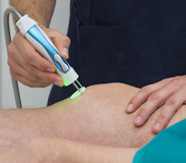 .
.
" />  .
.
" /> 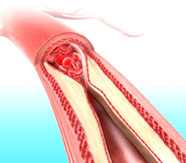 .
.
" />  .
.
Laser vision correction in Israel
The method of laser vision correction has been used in general medical practice since the mid-80s of the 20th century. Accumulated statistics on the use of laser in ophthalmology suggests that vision correction by means of a laser beam has high efficiency. The essence of laser vision correction is to evaporate strictly defined sections of the cornea using a beam of excimer medical laser.
The operation is performed under local anesthesia (pain relief drops). Laser correction is practically painless and can be performed on a wide group of patients between the ages of 18 and 45 who suffer from nearsightedness, farsightedness (including age), astigmatism, or a combination of these disorders of visual function.
Before surgery, the patient is prescribed a comprehensive diagnostic eye test, which lasts about 3 hours. During this test, a specialist radiologist (taking a picture of the eyes), an optometrist (checking visual acuity and quality of vision) works with the patient, in addition, the thickness and structure of the cornea is determined, the intraocular pressure is measured, as well as the volume of the pupil.
In modern Israel, preference is given to the two main methods of laser vision correction. PRK (photorefractive keratectomy) and various types of LASIK surgery (laser keratomileusis).
The operation of photorefractive keratectomy involves the use of a laser for non-contact exposure to the surface of the cornea, other eye structures are not damaged. The laser beam that is used to process the cornea is controlled by a special computer program, therefore the result of the intervention is predictable, and medical errors are excluded. The disadvantages of the photorefractive keratectomy method include the impossibility of correcting high degree ametropia, as well as the presence of a large number of contraindications.
LASIK surgery is an even more advanced type of excimer laser vision correction. This operation lasts about 15-20 minutes, the next day the patient can read or write without optical devices - glasses, contact lenses. This is the most gentle and effective way to correct visual functions today.
During LASIK surgery, the laser beam affects only the inner layers of the cornea, and the upper layer is separated and retracted to the side. After the operation, he returns to the site and easily engraves, without requiring suturing.
A popular type of laser keratomileusis is the IntraLas method. Operations of this type are carried out on the most modern ophthalmological equipment. The method is distinguished by a particularly rapid postoperative stabilization of vision and is suitable even for those who are contraindicated for other laser operations. The incision and restoration of the integrity of the cornea is carried out using the device IntraLase.
The PresbyLasik technology used for the correction of presbyopia, or age-sightedness, has also received widespread use in Israeli medical centers. During the surgical correction using this method, both eyes are operated on, which allows the patient to return the multifocal vision. After surgery, the patient sees objects well at any distance, both close and far away.
Laser vision correction in Israel is very popular among both Israeli patients and guests from abroad, because it allows an experienced specialist to re-form the cornea and permanently save the patient from glasses and contact lenses.
To receive an initial consultation with a specialist, leave your email address and telephone number, select the topic that interests you and one of our doctors will contact you as soon as possible.
My eyes see again!
Pluses: perfect vision
Disadvantages: painful procedure, recovery period
Dreams Come True!
"Cosmetic" procedure that does not guarantee you a lifetime of 100% vision (photo)
Advantages: fast, good vision - worth the money spent on it, the recovery period is not too heavy and long (tolerant)
I had planned a laser vision correction for a long time, and thoroughly (I arranged for the vacation, chose the clinic and underwent testing before it passed the tests - they are valid for 1 month. And I received a low-cost fluorography for 1 year.
Diagnosis and treatment of diseases
Laser vision correction
Warning. include (): open_basedir restriction in effect. File (/usr/local/zend/share/pear/share/share_customize_type.php) is (/ home / users / t / trdd499 /: / usr / local / lib / php /: / tmp /) in /home/users/t/trdd499/domains/publicstat.ru/wp-content/plugins/share-buttons/share-buttons-scripts.php on line 165
Warning. include (): open_basedir restriction in effect. File (/usr/local/zend/share/pear/like/like_customize_type.php): (/ home / users / t / trdd499 /: / usr / local / lib / php /: / tmp /) in /home/users/t/trdd499/domains/publicstat.ru/wp-content/plugins/share-buttons/share-buttons-scripts.php on line 175
Among the dozens of methods for correcting ametropia that exists today (this is the name for various violations of the refractive ability of the eye), laser vision correction is considered the safest.
The essence of the operation of laser vision correction
The cornea is the most convex front part of the eye, which is transparent and serves to refract light rays. If a person has astigmatism, farsightedness or myopia, then the focusing of the rays is disturbed. However, vision can be corrected with a medical excimer laser.
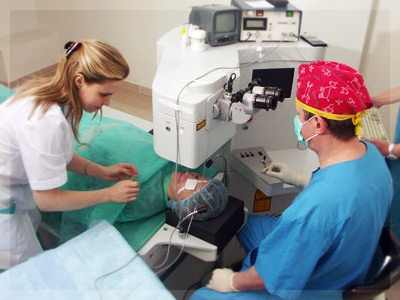 The procedure can be prescribed to people aged 18 to 45 years and allows correction of myopia (up to –15.0 D), hyperopia (up to + 6.0 D) and astigmatism (up to ± 3.0 D).
The procedure can be prescribed to people aged 18 to 45 years and allows correction of myopia (up to –15.0 D), hyperopia (up to + 6.0 D) and astigmatism (up to ± 3.0 D).
The laser exposure lasts no more than 40 seconds, and the whole operation, taking into account the preparation stage, takes about 15 minutes. To carry out this manipulation, doctors do not need to hospitalize the patient - the operation is performed on an outpatient basis. Almost immediately after laser correction, a person can go home independently.
Benefits of the procedure
A computer-controlled laser beam can reduce the thickness of the defective areas of the cornea and give the cornea the shape that will ensure optimal focusing. During laser vision correction, the laser beam affects only the cornea without damaging other shells.
During surgery, the patient does not feel any pain. local anesthesia will relieve all discomfort. In addition, laser vision correction has a minimal list of postoperative complications and a short recovery period with a predictable result.
If we talk more about the safety of this method, then first we need to remember that such operations have been carried out for almost 30 years (with the excimer laser being used for a little more than ten years), so doctors even have an idea about the long-term effects of the operation. Over all these years, there have been very few cases of deterioration or loss of vision as a result of the procedure, while tens of thousands of people can say thanks to the method of laser vision correction for their new-found ability to see well.
Types of laser vision correction
Currently there are several options for laser vision correction:
Photorefractive keratoectomy (PRK) is the very first such method of correcting ametropia with the help of a laser. The boundaries of its application are slightly narrower than those of more modern methods, and the recovery period may take several days.
LASIK (or LASIK, LASIK, from English Laser-Assisted in Situ Keratomileusis, that is, "laser keratomileusis") - in this operation, the ophthalmologic surgeon removes the epithelium layer using the special microkeratome tool where the laser will be used. This reduces the occurrence of side effects and speeds up the regeneration process.
LASEK (LASEK, from Laser Epithelial Keratomileusis) - combines the advantages and avoids the disadvantages of PRK and LASIK. Before the operation, the epithelium is separated from the cornea with a solution of ethyl alcohol, after which the cornea is reshaped with a laser. A new epithelium covers the cornea after a few days, and before that the surface of the cornea is protected by a flap of old epithelium.
EPI-LASIK (EPI LASIK) - a surface flap with this method of laser vision correction is formed from the corneal epithelium together with the basement membrane, that is, the base to which the epithelium is attached. This allows you to significantly expand the scope of the operation and carry it out in people with “dry eye” syndrome and with a thinned cornea.
FEMTO-LASIK (FemtoLASIK) - the flap is removed using a femtosecond laser, that is, non-contact.
SUPER-LASIK (Super LASIK, or Wavefront LASIK) - before the operation, a special wavefront analyzer is used, which calculates the ideal parameters of the visual system. About laser vision correction using Wavefront technology here: http://www.okomed.ru/lasik.html.
Contraindications to surgery
Currently, the level of accuracy of ophthalmic laser systems is so high that the laser correction procedure can be recommended for almost every person, and the list of contraindications is reduced to just a few points:
If you have contraindications for excimer laser vision correction, this is not a sentence. Modern medicine has other methods that help to effectively restore vision. For example, you may be advised to implant a phakic lens. Perhaps the use of tangential or arcuate keratotomy, as well as treatment, combining the above methods.
For advice on the possibility of laser eye surgery, contact a qualified ophthalmologist.
Handbook of modern medicine
Vision correction after 40 years
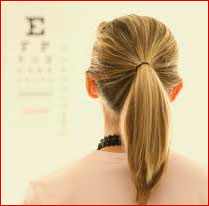 After 40 years, almost everyone faces a loss of visual acuity. According to statistics, between the ages of 45 and 60, people lead up to 5-6 pairs of glasses. Do glasses after forty years become an indispensable necessity, or is modern vision correction able to rid us of them?
After 40 years, almost everyone faces a loss of visual acuity. According to statistics, between the ages of 45 and 60, people lead up to 5-6 pairs of glasses. Do glasses after forty years become an indispensable necessity, or is modern vision correction able to rid us of them?
Why does vision deterioration occur at all at this age? In our eyes there are special live lenses - lenses, with the help of the eye muscles, these lenses change their curvature, focusing the image on the retina of the eye. The density of the lenses changes with age, they become more rigid, as a result of which the muscles can no longer change their curvature.
In order not to get a lot of glasses (for near, distance, reading, etc.) you need to contact an ophthalmologist, he will prescribe, so-called progressive glasses or lenses. Most people prefer glasses, as they are easier to use, and they have no contraindications (there are contraindications for wearing lenses). The lenses of progressive glasses are arranged in such a way that they make it possible to see well and far, and close, and in the intermediate zone.
But not everyone wants to wear even very stylish glasses or use lenses daily. In this case, the currently popular excimer laser vision correction may be appropriate.
What is it all about? Excimer laser is a kind of special cold ultraviolet laser that allows you to create a lens directly on eye tissue using a laser beam, thanks to which a person begins to see well.
How does this happen? First, the microlayer is cut off the surface of the cornea of the eye, exposing the stroma of the eye, which consists of the unformed connective tissue of the cornea. Next, the laser beam evaporated layers of the stroma, changing the shape of the cornea. This is the essence of laser vision correction - to change the shape and curvature of the cornea.
Modern methods of laser correction can avoid complications that have occurred before. Now, after such an operation, the patient almost immediately returns to a normal lifestyle. At the same time, it should be understood that laser vision correction is not a method of treatment, it is a correction. That is, in fact, these are the same glasses, just not outside the eye, but inside it. Excimer laser vision correction can correct myopia, hyperopia and astigmatism.
Despite the excellent results and the effectiveness of this vision correction, she still has contraindications: too thin cornea, previous viral eye infections or eye injuries. In other matters, you just need to go to an ophthalmologist, and after the examination (which takes several hours) the doctor will tell you which method of vision correction is right for you.
Answers questions to:
Bychkov Sergey Aleksandrovich.
ophthalmologist
What is laser vision correction?
Laser vision correction is a change in the dioptricity of the cornea of the eye in the right direction (plus or minus) using an excimer laser unit to compensate for congenital or acquired refraction of the eye. The operation of laser vision correction is one of the non-penetrating manipulations and is equal to the category of cosmetic interventions.
What are the benefits of laser vision correction?
- speed of operation The duration of the operation is approximately 5 minutes per eye.
- quick rehabilitation
- high accuracy of results
- no complications (subject to all recommendations of the doctor)
- the ability to perform the operation simultaneously on both eyes
- no pain during surgery
How long does the effect of the operation last?
The effect of the operation is preserved forever. Only in a small percentage of cases is the effect weakened. When using Allegretto Wave 400, the percentage of these cases is minimal compared to other excimer laser installations. (Exl)
Will I have 100% vision?
With excimer laser correction (EXL), the maximum possible vision is achieved. It is easy to check - if in correctly selected glasses or lenses the vision is 100% (visus = 1.0), then it will be as such after the EXL correction. Cases and exceeding of 100% of sight are frequent (visus = 1.2; 1.5; 2.0).
What are the contraindications of laser vision correction?
Eye contraindications include progressive myopia, cataracts, glaucoma, chronic recurrent uveitis, etc. There are a number of common diseases that are contraindicated - systemic connective tissue diseases, immunodeficiency states, mental disorders, etc.
Are complications possible?
The risk of complications is directly related to a number of factors. This is the experience and professionalism of the staff, the quality of the equipment, the conditions of the operation. For each of these parameters, a lot of work has been done, as a result of which we have experienced surgeons and highly skilled average medical personnel, we have the most modern equipment that meets the highest international standards, a comfortable hospital and an operating unit that meets all modern requirements and rules.
Is this a painful operation?
Not. The operation uses only local anesthesia.
What is the rehabilitation period after laser correction surgery?
Within 1 week there is a complete visual adaptation, restrictions regarding physical activity are valid for 1 month.
Should I do a laser correction with a slight minus (plus)?
The answer to the question "whether or not to make an EXL correction" is always only in your competence. You can only say that if a small minus (plus) brings discomfort and reduces vision, then why not.
Are there any age limits for laser vision correction?
The operation is carried out on reaching the 18th age. There is no maximum limit and the issue is solved individually.
What methods of laser vision correction are used in your clinic?
Lasik, Epi-lasik, PRK, Super-Lasik (individualized ablation).
How long is the operation?
The operation on one eye takes about 5 minutes.
Can I use color contact lenses after surgery?
It is possible in one month.
How long does it take to be in the clinic after surgery?
About 3 hours.
Is it dangerous to do laser vision correction before delivery?
Not. After laser correction you can become pregnant after 3 months.
You can make an appointment or find out more detailed information on the question you are interested in by phone in Stavropol: 50–09–09
- In contact with 0
- Google+ 0
- OK 0
- Facebook 0




